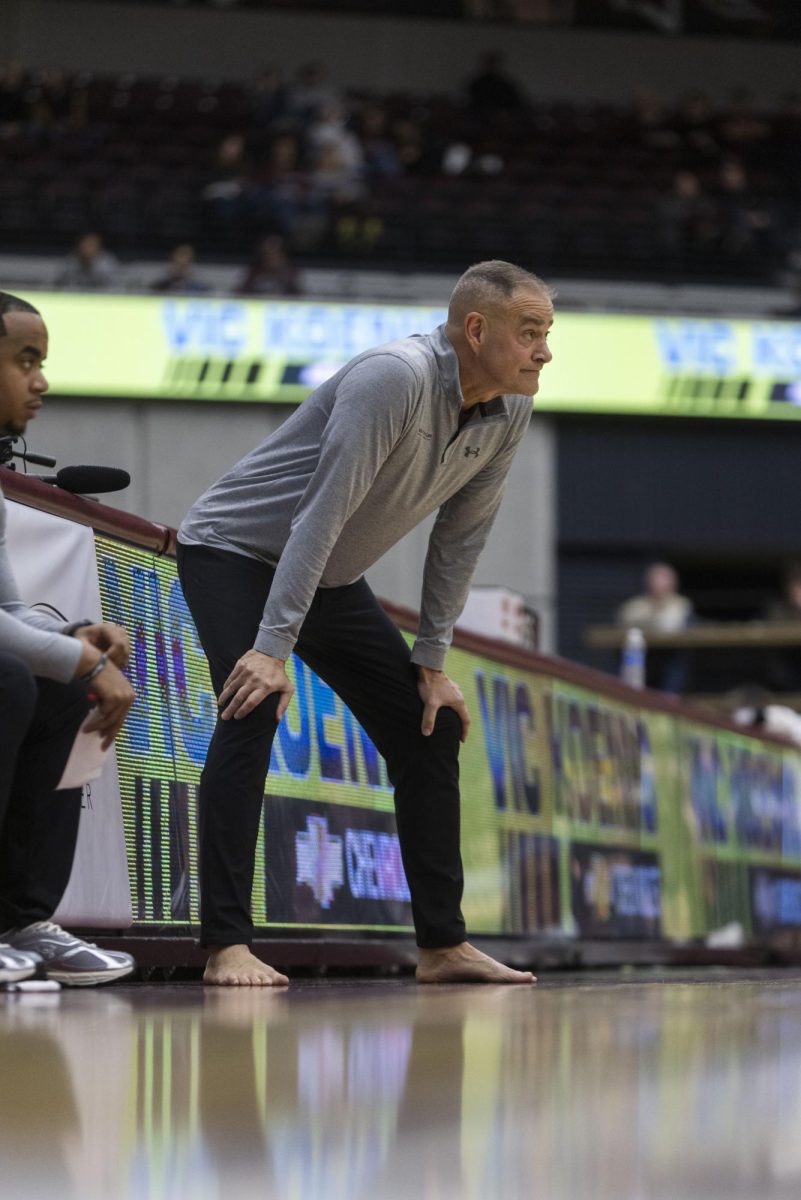Former defensive end tackles academics
July 7, 2009
After years of punishing quarterbacks, running backs, offensive linemen and anyone else in his path, Jeff Jones has transformed into a different force.
Saluki football’s linchpin at defensive tackle/end for five years, Jones now plays a crucial role for student athletes in the Trout Wittman Center as the athletic department’s academic advisor.
‘It’s my job to really be their rock, their strength to motivate them to try to reach their goals and everything they want to achieve at this level,’ Jones said.
Advertisement
It’s a role he knows well, as many of his advisers and mentors during his undergraduate and graduate career put him in the place he is today, he said.
The Detroit native was a member of former coach Jerry Kill’s first recruiting class in 2001. He joined a program that had nine consecutive losing seasons, a low graduation rate and a chance at being eliminated by the university.
Five years later, he walked across the stage at graduation with three conference championship rings.
He attributed that success to Kill, who he called one of the toughest coaches in the world, and a group of caring professors. But it was not always sunshine in southern Illinois for Jones.
‘I really can’t count how many times I was down and out as a freshman and my sophomore year,’ he said. ‘Being 10 hours away from home, you’re trying to meet your coach’s demands, professor’s demands, your family is on your back – so many demands that you’re trying to meet as a young adult.’
He said life could be tough for young student athletes, especially those far from home. They often have an hour or two of workouts before morning classes, squeeze in a lunch break between lectures and lifting, and then practice until 6 p.m., all while dealing with the high standards of coaches and instructors.
Jones said the difference for him was professors who cared enough to notice he was having a rough day. A minor gesture such as a brief conversation can often be the difference in a student’s life, he said.
Advertisement*
‘That five or 10 extra minutes that they may say something to them at the end of the class period may be the few words that keep the kid from dropping out or quitting on themselves,’ Jones said. ‘My professors, I considered them more as mothers and fathers away from home, because some of the words and motivation they provided me will stick with me the rest of my life.’
One such professor for Jones was Regina Glover, a health and recreation professor who chaired Jones’ master’s thesis committee. Jones credited Glover with most of his success.
Glover called Jones a highly motivated, independent worker who was tremendously skilled at balancing his sport and academic career. He earned his master’s degree in two years and was noticed enough to earn the 2008 Graduate Student of the Year award.
‘A lot of people come to graduate school and don’t get done within a two-year time span. That was not an issue for Jeff,’ Glover said. ‘He had a deadline and just kept moving toward it. Not to say there weren’t a few bumps once in a while, but you know that happens.’
Those sporadic bumps may be what make Jones relate so well to young student athletes, who often have a more difficult time than some assume, Glover said.
But in 26 years at the university, Glover said she has been impressed with an increasing shift in the athletic department’s commitment to academics. She said Jones could be a critical part of that continued success.
‘He understands that some students come to school without the basic skills that maybe he came with, and for them to be able to survive he has to help them understand you either have to measure up here or you’re going to lose your opportunity,’ she said.
Glover said Jones has watched others struggle and has undergone difficult times himself, which helps him mentor athletes through their problems.
And when Jones thinks of victory through adversity, he looks no further than his own football mentor – New York Jets linebacker Bart Scott.
As a Saluki, Scott took Jones under his wing when Kill gave the NFL Pro Bowler a second chance after he was removed from the team for behavior and academic issues.
‘People have no idea how much struggle and how hard Bart worked to be where he is today,’ Jones said. ‘Everyone looks at Bart and says, ‘Wow, he’s a $48 million Saluki.’ But people don’t realize Bart’s story.’
Jones said he saw what Scott was able to do with the second chance he was given, and it inspired the young defender to take advantage of what he had been blessed with.
Now that Scott has experienced so much NFL success, Jones said he uses his mentor’s story as a guiding light for younger athletes.
‘Bart could have never come back to college and been back in Detroit doing who knows what, but to see what a coaching staff can do with the proper mentoring, it’s unbelievable,’ Jones said.
Because of his experiences, Jones is willing to go the extra mile for students, even opening the Trout Wittman computer lab after its hours of operation are over, said Katrina Swingler, a junior forward for the women’s basketball team.
Swingler said she met with Jones often her freshman year, before he was promoted to academic adviser. She said he communicated well and understood that the hours of 8:30 a.m. to 5 p.m. were not always enough for the demanding schedules of athletes.
‘He’s the type of guy that will do anything for you,’ Swingler said. ‘I think he knows exactly what we’re feeling and what stress we’ve got.’
‘
Advertisement







